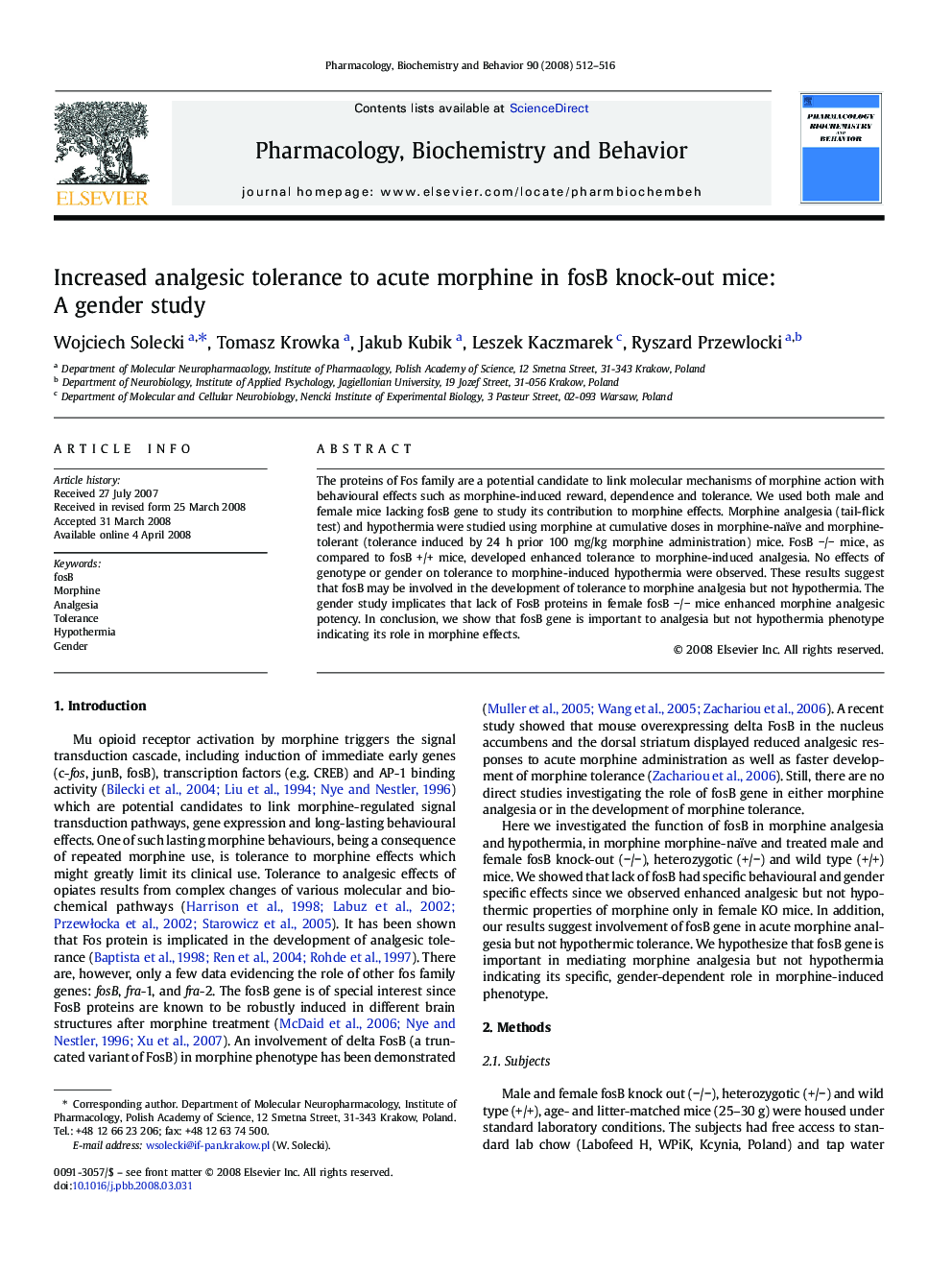| Article ID | Journal | Published Year | Pages | File Type |
|---|---|---|---|---|
| 2013303 | Pharmacology Biochemistry and Behavior | 2008 | 5 Pages |
The proteins of Fos family are a potential candidate to link molecular mechanisms of morphine action with behavioural effects such as morphine-induced reward, dependence and tolerance. We used both male and female mice lacking fosB gene to study its contribution to morphine effects. Morphine analgesia (tail-flick test) and hypothermia were studied using morphine at cumulative doses in morphine-naïve and morphine-tolerant (tolerance induced by 24 h prior 100 mg/kg morphine administration) mice. FosB −/− mice, as compared to fosB +/+ mice, developed enhanced tolerance to morphine-induced analgesia. No effects of genotype or gender on tolerance to morphine-induced hypothermia were observed. These results suggest that fosB may be involved in the development of tolerance to morphine analgesia but not hypothermia. The gender study implicates that lack of FosB proteins in female fosB −/− mice enhanced morphine analgesic potency. In conclusion, we show that fosB gene is important to analgesia but not hypothermia phenotype indicating its role in morphine effects.
